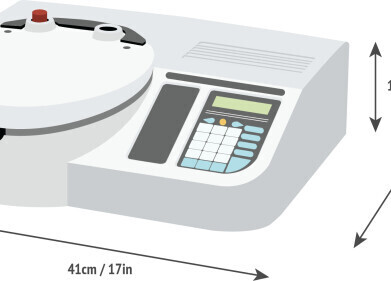Chromatography
Is Birth Control Linked to Depression?
Jan 16 2020
In a recent study presented at the Radiological Society of North America (RSNA), a team of researchers discovered women who use birth control pills have smaller hypothalamus volume, a region of the brain associated with regulating depression and anger. While the findings are preliminary, study author Dr Michael Lipton and his team assert the research offers new insight into the cognitive effects of the contraceptive pill.
Peering into the hypothalamus
Located just above the pituitary gland, the hypothalamus is a small yet powerful region of the brain responsible for producing hormones and regulating essential body functions, including mood, sleep, appetite, body temperature and libido. Previous studies have linked hypothalamus dysregulation to depression and suggest smaller hypothalamic volume can trigger mood swings, anger, fear and aggression.
For the most recent study, Lipton and his team took high-resolution MRI scans of 50 women, all in good health. Of the group, 21 were taking oral contraceptives. When analysing the scans, the researchers noticed a "dramatic difference" in the size of the hypothalamus, with women on the contraceptive pill on the smaller end of the scale.
"Sex hormones have known (from animal studies) trophic effects on the central nervous system," explains Lipton. "Some results on brain structure have been reported, but none on the hypothalamus, which has a central role in the regulation of reproduction and endocrine function in general."
Understanding the "functional alterations" of the pill
For Lipton and his colleagues, the study offers a "bridge to understanding functional alterations" associated with the use of the contraceptive pill. While the research is telling, Lipton also stresses the study group was small and the findings offer "the first hint at an effect of OCPs on the hypothalamus."
For the 3.5 million British women currently on the pill, the findings could have major implications. Not only are oral contraceptives used as a form of birth control, but they're also prescribed to treat acne, irregular menstruation, polycystic ovary syndrome, premenstrual dysphoric disorder (PMDD) and endometriosis. For most women the side effects outweigh the risks, however a growing body of research, including the latest study led by Lipton, could challenge perceptions.
From contraceptive pills to e-cigarette liquids, scientists work hard to safeguard public health. For a closer look at the cutting-edge SCION 436 GC with Single Quad Mass Spectrometer being used to analyse e-liquid samples and verify safety, don't miss 'Analysis of Electronic Cigarette E-Liquids by GC-MS.
Digital Edition
Lab Asia Dec 2025
December 2025
Chromatography Articles- Cutting-edge sample preparation tools help laboratories to stay ahead of the curveMass Spectrometry & Spectroscopy Articles- Unlocking the complexity of metabolomics: Pushi...
View all digital editions
Events
Jan 21 2026 Tokyo, Japan
Jan 28 2026 Tokyo, Japan
Jan 29 2026 New Delhi, India
Feb 07 2026 Boston, MA, USA
Asia Pharma Expo/Asia Lab Expo
Feb 12 2026 Dhaka, Bangladesh



















